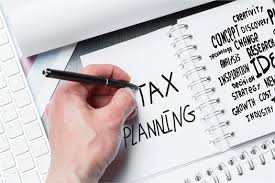Tax planning for income
WHAT IS A TAX STRATEGY?
A tax strategy is a plan of action for reducing taxes, regardless of your business or investment situation. It is more than just wishing you could pay fewer taxes. It is a strategy crafted to ethically and morally ensure you pay the least amount of tax allowable by law.
Tax strategy optimizes the way your business income and personal spending is structured. It includes analysis of how your business structure affects your payroll and income taxes, which of your expenses is deductible, and how you can most efficiently support the people and causes important to you. It will detail how you can reduce your taxes based on current tax law by maximizing your deductions based on your wealth strategy, shift income from high tax rates to lower tax rates, and maximize your tax credits.
Tax strategies are different from typical practices of CPAs. A tax strategy is a long-term vision for your financial and business future. That’s why your tax strategy should be designed for years, if not decades, ahead.

Contribute to retirement accounts
Whether it is a 401K or IRA, contributing to your retirement account can reduce your taxable income. While there are limitations, this is an easy way to reduce your taxable income and grow your wealth.
For 2020 there is a $6,000 limit on taxable contributions to retirement accounts. But, if you are over 50, you can contribute another $1,000.
With that being said, you can open an IRA for each spouse, doubling the tax deduction. That is a total of $12,000 you can defer paying income tax on.
It is important to understand the differences in the types of IRAs before you consider contributions. I won’t delve into that here, but it is important to understand contributions to a traditional IRA are tax-deductible, contributions to a Roth IRA are not.
401K contributions is another retirement plan to consider. The more you add to these accounts, the more you can reduce your taxable income, effectively helping you build wealth for the future.
Keep in mind, some employees may contribute to both a 401K and IRA in the same year and defer taxable income on both, but those who earn more than $65,000 (104,000 for couples) are unable to take the deduction for both.
Major tax planning
There are many areas of your financial life that can benefit from tax planning. Here are some of the ones that can pay off in the biggest ways:
- Retirement contributions: Contributing to a retirement plan is one of the best ways you can save for your own future and save money on taxes.
When you contribute to a traditional 401k plan at work, those contributions reduce your taxable income, so you will owe less tax at the end of the year. When you contribute to a traditional IRA, you also reduce your taxable income, as you will record how much you contributed on your tax form, and that may reduce your income.
- Flexible spending account contributions: Contributions made to medical expense flexible spending accounts and dependent care flexible spending accounts are made through employers who offer them.
These contributions are made on a pre-tax basis, so you save money on healthcare or dependent care-related expenses. Be aware that you must use all or most of your flexible spending account contribution in the year it was contributed or within a few months of year’s end; otherwise, you will lose those balances.
- Health savings account contributions: If you have a high-deductible health plan, you can deduct the contributions that you make.
This has an additional benefit of not only saving you money on your taxes, but also helping you save for healthcare expenses and pay for those on a pre-tax basis.
- Charitable donations: If you donate money to a church, social services organization or non-profit, and you itemize your deductions, you can save money if your itemized deductions exceed your standard deduction.
It’s important to document what you donate by obtaining a receipt from the charitable organization.

Tax planning for income
You don’t want to pay more in federal income tax than you have to. With that in mind, here are five things to consider when it comes to keeping more of your income.
1. Postpone your income to minimize your current income tax liability
By deferring (postponing) income to a later year, you may be able to minimize your current income tax liability and invest the money that you’d otherwise use to pay income taxes. And when you eventually report the income, it’s possible that you’ll be in a lower income tax bracket.
Certain retirement plans can help you postpone the payment of taxes on your earned income. With a traditional 401(k) plan, for example, you contribute part of your salary into the plan, paying income tax only when you later withdraw money from the plan (withdrawals before age 59½ may be subject to a 10 percent penalty tax in addition to regular income tax, unless an exception applies). This allows you to postpone tax on part of your salary and take advantage of the tax-deferred growth of any investment earnings.
There are many other ways to postpone your taxable income. For instance, you can contribute to a traditional IRA, buy permanent life insurance (the cash value part grows tax deferred), or invest in certain savings bonds. You may want to speak with a tax professional about your tax planning options.
2. Shift income to family members to lower the overall family tax burden
You may also be able to minimize your federal income taxes by shifting some income to family members who are in a lower tax bracket. For example, if you own stock that produces dividend income, one option might be to gift the stock to your children. After you’ve made the gift, the dividends will represent income to them rather than to you, potentially lowering your family’s overall tax burden. Keep in mind that you can make a tax-free gift of up to $15,000 (in 2019 and 2020, and could increase in future years) per year per recipient without incurring federal gift tax.
However, look out for the kiddie tax rules. Under these rules, for children under age 18, or children under age 19 (or full-time students under age 24) who don’t earn more than one-half of their financial support, any unearned income over $2,200 (in 2019 and 2020) is taxed using the trust and estate income tax brackets. Also, be sure to check the laws of your state before giving securities to minors.
Other ways of shifting income include hiring a family member for the family business and creating a family limited partnership. Be sure to investigate all of your options carefully before acting.
3. Deduction planning involves proper timing and control over your income
Part of minimizing federal income tax is about taking advantage of all deductions to which you are entitled, and timing them in the most beneficial manner.
As a starting point, you’ll have to decide whether to itemize your deductions or take the standard deduction. Generally, you’ll choose whichever method lowers your taxes the most. If you itemize, be aware that some deductions (for example, medical expenses) are allowed only to the extent the deduction exceeds some percentage of your adjusted gross income (AGI). In cases where your deductions are affected by your AGI, you might look at ways to potentially increase your allowable deductions by reducing your AGI. To lower your AGI for the year, you can defer part of your income to next year, buy investments that generate tax-exempt income, and contribute as much as you can to qualified retirement plans.
Because you can sometimes control whether a deductible expense falls into the current tax year or the next, you may have some control over the timing of your deduction. If you’re in a higher federal income tax bracket this year than you expect to be in next year, you’ll want to consider accelerating deductions into the current year. You can accelerate deductions by paying deductible expenses and making charitable contributions this year instead of waiting until next.
4. Investment tax planning uses timing strategies and focuses on your after-tax return
You can also minimize tax by making tax-conscious investment choices. Potential strategies can include the use of tax-exempt securities and intentionally timing the sale of capital assets for maximum tax benefit.
Although income is generally taxable, certain investments generate income that’s exempt from tax at the federal or state level. For example, if you meet specific requirements and income limits, the interest on certain Series EE bonds (these may also be called Patriot bonds) used for education may be exempt from federal, state, and local income taxes. Also, you can exclude the interest on certain municipal bonds from your income (tax-exempt status applies to income generated from the bond; a capital gain or loss realized on the sale of a municipal bond is treated like a gain or loss from any other bond for federal tax purposes). And if you earn interest on tax-exempt bonds issued in your home state, the interest will generally be exempt from state and local tax as well. Keep in mind that although the interest on municipal bonds is generally tax exempt, certain municipal bond income may be subject to the federal alternative minimum tax. When comparing taxable and tax-exempt investment options, you’ll want to focus on those choices that maximize your after-tax return.
In most cases, long-term capital gain tax rates are lower than ordinary income tax rates. That means that the amount of time you hold an asset before selling it can make a big tax difference. Since long-term capital gain rates generally apply when an asset has been held for more than a year, you may find it makes good tax-sense to hold off a little longer on selling an asset that you’ve held for only 11 months. Timing the sale of a capital asset (such as stock) can help in other ways as well. For example, if you expect to be in a lower income tax bracket next year, you might consider waiting until then to sell your stock. You might want to accelerate income into this year by selling assets, though, if you have capital losses this year that you can use to offset the resulting gain.
Note: You should not decide which investment options are appropriate for you based on tax considerations alone. Nor should you decide when (or if) to sell an asset solely based on the tax consequence. A financial or tax professional can help you decide what choices are right for your specific situation.
5. Year-end planning focuses on your marginal income tax bracket
Year-end tax planning, as you might expect, typically takes place in October, November, and December. At its most basic level, year-end tax planning generally looks at ways to time income and deductions to give you the best possible tax result. This may mean trying to postpone income to the following year (thus postponing the payment of tax on that income) and accelerate deductions into the current year. For example, assume it’s December and you know that you’re in a higher tax bracket this year than you will be in next year. If you’re able to postpone the receipt of income until the following year, you may be able to pay less overall tax on that income. Similarly, if you have major dental work scheduled for the beginning of next year, you might consider trying to reschedule for December to take advantage of the deduction this year. The right year-end tax planning moves for you will depend on your individual circumstances.
General tax planning
General tax planning strategies for individuals this year include postponing income and accelerating deductions, as well as careful consideration of timing related investments, charitable gifts, and retirement planning. For example, taxpayers might consider using one or more of the following:
- Selling any investments on which you have a gain or loss this year. For more on this, see Investment Gains and Losses, below.
- If you anticipate an increase in taxable income this year (2017) and are expecting a bonus at year-end, try to get it before December 31. Keep in mind, however, that contractual bonuses are different, in that they are typically not paid out until the first quarter of the following year. Therefore, any taxes owed on a contractual bonus would not be due until you file your 2018 tax return in 2019. Don’t hesitate to call the office if you have any questions about this.
- Prepaying deductible expenses such as charitable contributions and medical expenses this year using a credit card. This strategy works because deductions may be taken based on when the expense was charged on the credit card, not when the bill was paid.
- For example, if you charge a medical expense in December but pay the bill in January, assuming it’s an eligible medical expense, it can be taken as a deduction on your 2017 tax return.
- If your company grants stock options, you may want to exercise the option or sell stock acquired by exercise of an option this year if you think your tax bracket will be higher in 2018. Exercising this option is often but not always a taxable event; sale of the stock is almost always a taxable event.
- If you’re self-employed, send invoices or bills to clients or customers this year to be paid in full by the end of December.



